Fascinating Numbers in Nature: Montessori Math and Math in America
A Mathematical Mind
In her forty years of work with children, Maria Montessori saw that humans have a natural affinity for numbers. In fact, we have what she and French philosopher Blaise Pascal called a “mathematical mind.” We see it in Montessori schools all over the globe. Research that has compared Montessori children with traditionally-educated children has demonstrated that Montessori children not only do well in math, but they often say that math is their favorite subject!

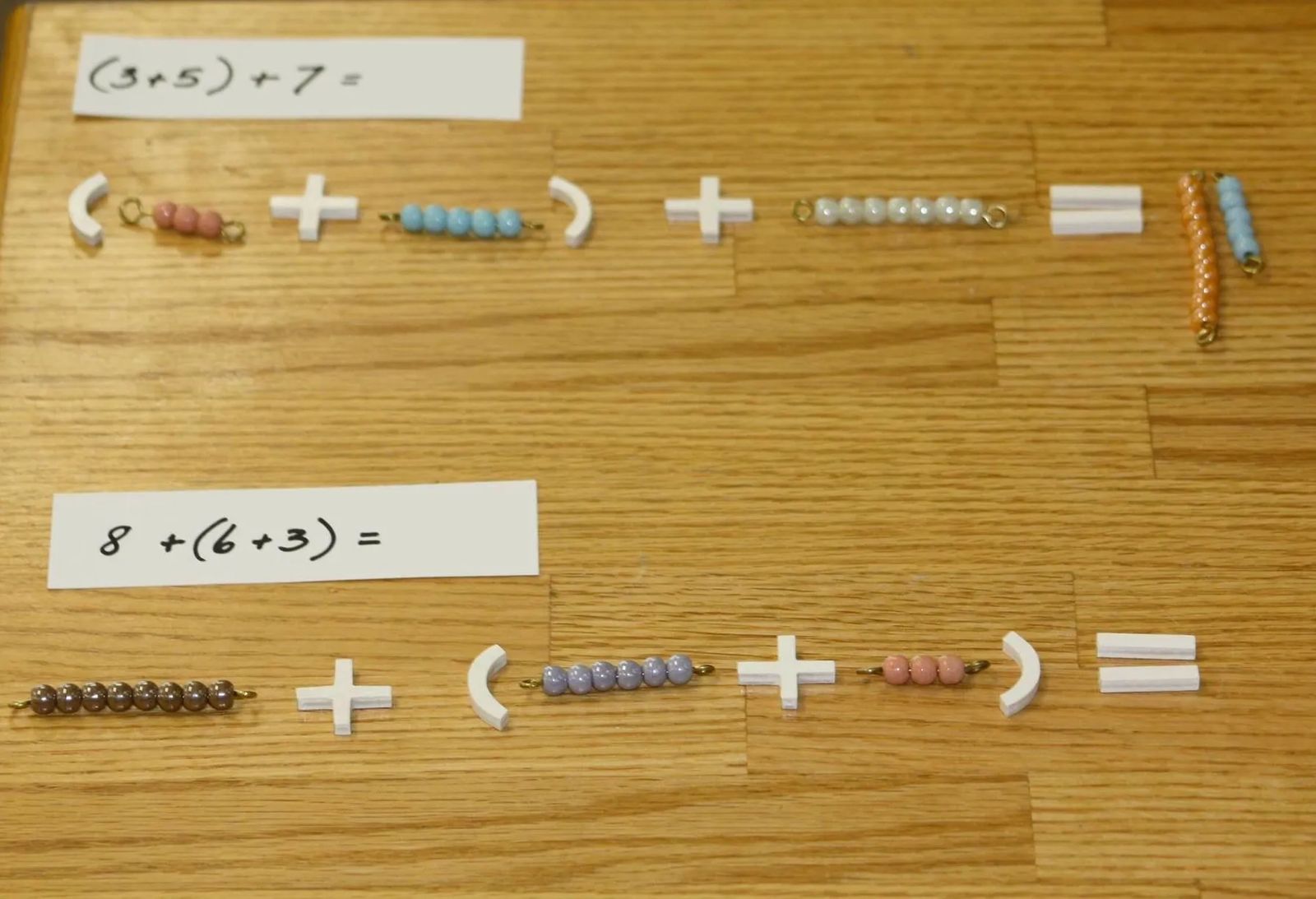
Ways you can use nature to introduce math to children include:
Special Short Course: Hands on Math: the Montessori Way!
Multiples of seven in the hatching of eggs
- Canary eggs hatch in 14 days.
- Barnyard hen eggs hatch in 21 days.
- Duck and geese eggs hatch in 28 days.
- Mallard duck eggs hatch in 35 days.
- Parrot and ostrich eggs hatch in 42 days.
Eggs are great to eat and look what you can do to decorate them! There are quite a lot of mathematical, geometric patterns in these eggs.
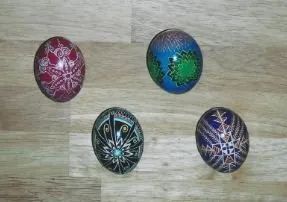
Hand-decorated Ukrainian pysanky eggs by Lydia Maunz-Breese
Even numbers in nature:
- Each watermelon has an even number of stripes on the rind.
- Each orange has an even number of segments.
- Each ear of corn has an even number of rows.
- Each stalk of wheat has an even number of grains.
- Every bunch of bananas has on its lowest row an even number of bananas, and each row decreases by one, so that one row has an even number and the next row an odd number.
The Montessori Hundred Board
Math can get quite interesting if we look at numbers as they occur in nature and learn some of the patterns. The Montessori Hundred Board is an example. Just stare at the image of the board and you start to see patterns horizontally, vertically and even diagonally.
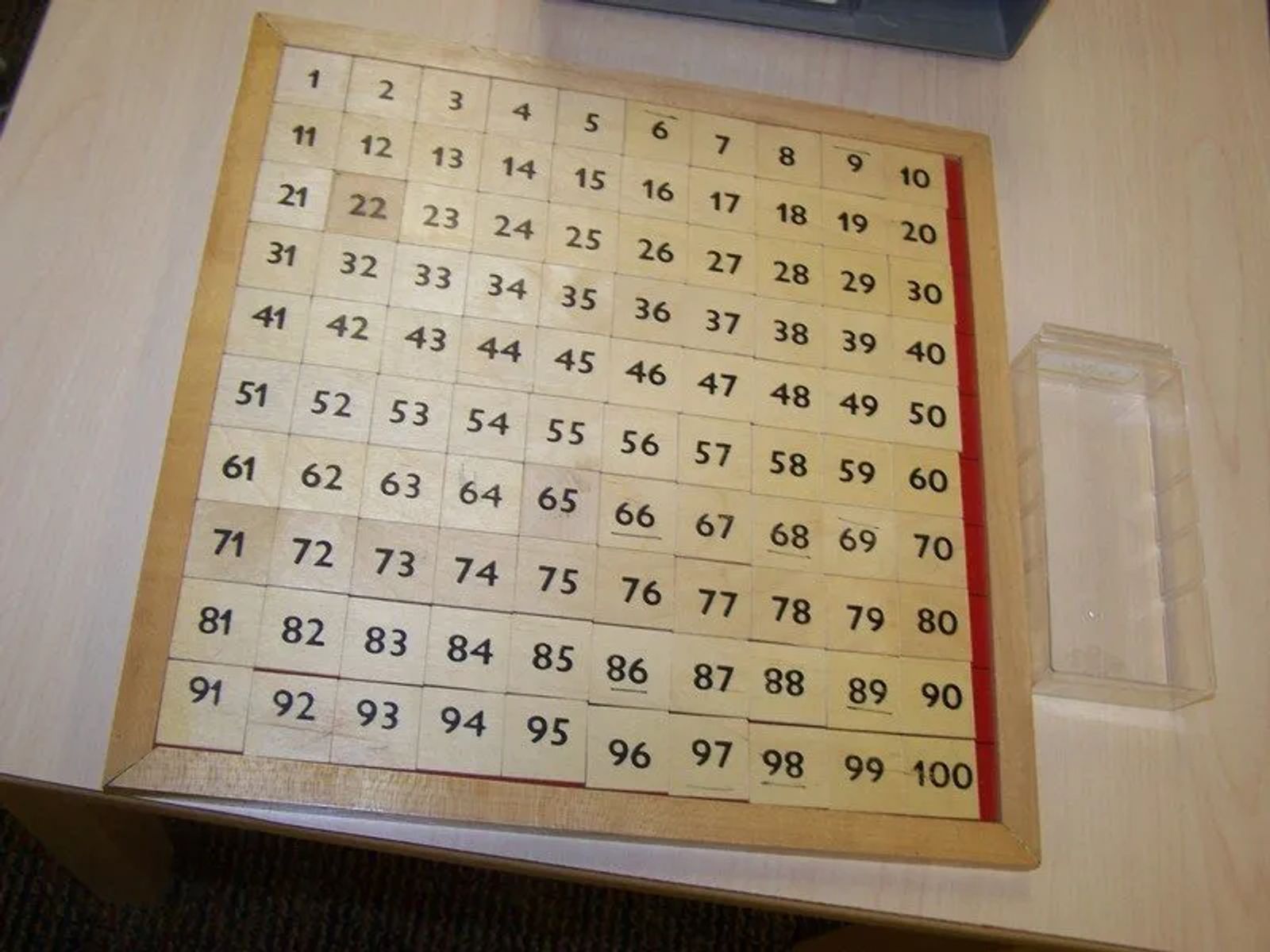
One of my children found this board so fascinating that during her preschool years she repeated it and wrote it out on squared paper more than fifty times. Somehow this seemingly simple lesson attracted the attention of her powerful mathematical mind. She went on to excel in pre-calculus in high school.
Montessori Children Love Math
This work builds upon previous, more concrete work such as the Numerical Rods, the Shell Game and the Decimal System with Golden Beads.
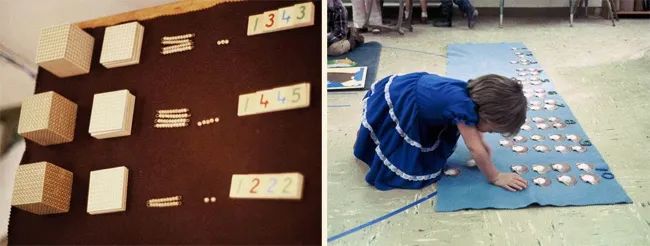
We see Montessori children all over the country loving math and doing well at it. They are clear on quantities, symbols and place value, having worked with their hands to build number quantities and understand the functions of the four operations:
- Addition is putting together.
- Multiplication is putting the same quantity together several times.
- Subtraction is taking away.
- Division is sharing equally.
When children get into Montessori elementary classrooms they are working with fractions and decimals, multiplication tables with beads, building to the square of ten, and long division, to name just a few activities.
The Nations Report Card: 40% of America’s fourth graders and 33% of eighth graders can do math with proficiency
We at Age of Montessori are dismayed by the math results of the 2015 National Assessment of Educational Progress (NAEP). Called “The Nation’s Report Card,” NAEP reports the results of the nationwide testing of children. Overall, national test scores have gone down in thirty of our fifty states. And the requirements for future adult employment have not been made simpler, but in many cases require more training and mathematical understanding.
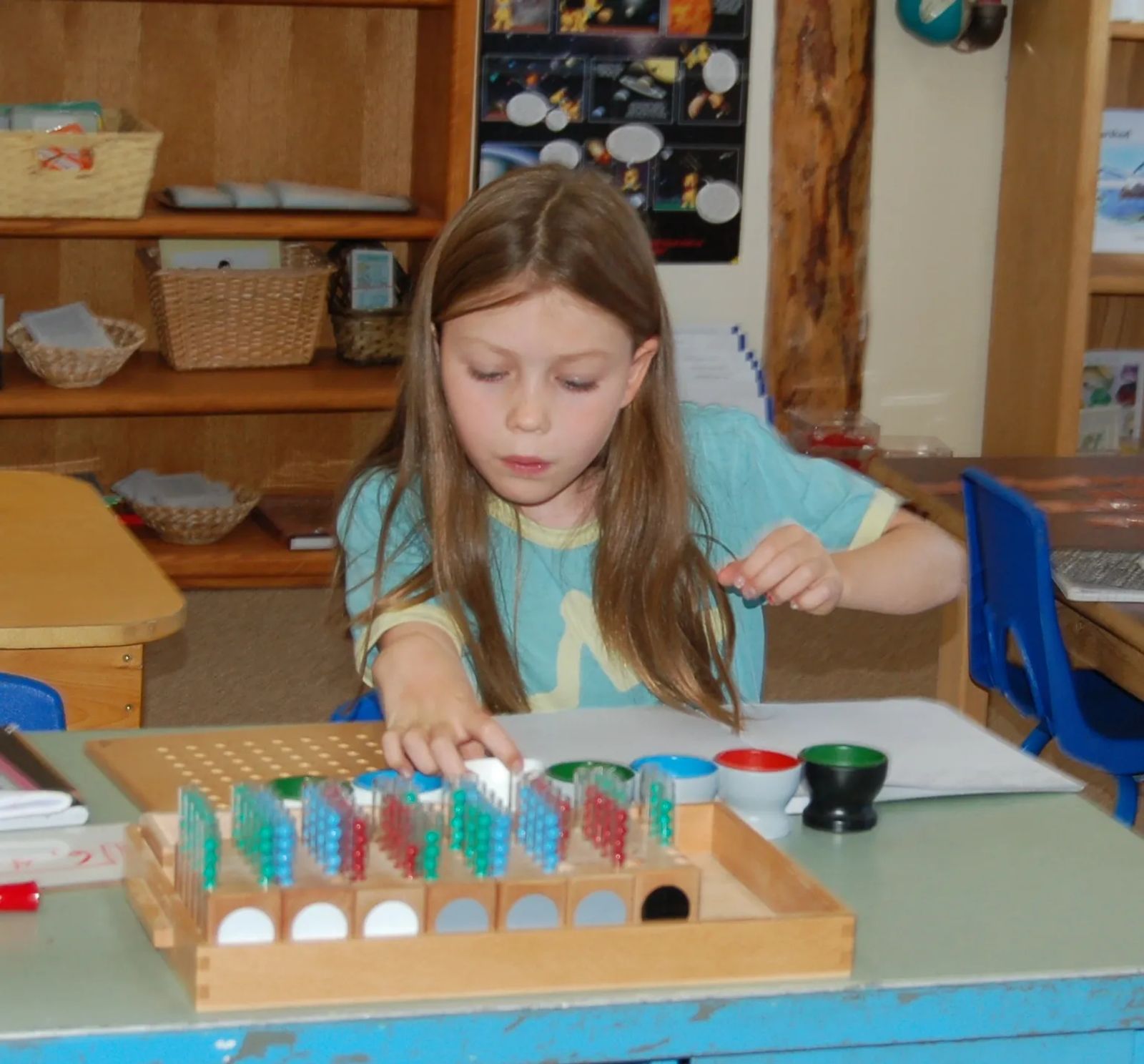
Reading Scores Are Even Worse
The numbers for reading are even more alarming. In 2015, 36% of our fourth graders are at or above proficient levels in reading and by eighth grade, that number drops to 34%. This means that two out every three people in our nation are not proficient in reading. These are parents who would love to help their children with homework, people who want to get better-paying jobs, and voters, as well as individuals trying to read insurance and tax information, rental agreements and headlines on the Internet. These are the people we need to fill high-tech jobs of every description, from government, military, civil service to teaching positions. They may be your children or next-door neighbors.
Our next issue of Heart of Montessori will be devoted to early reading and how we can conquer the problem of these low scores once and for all.




















